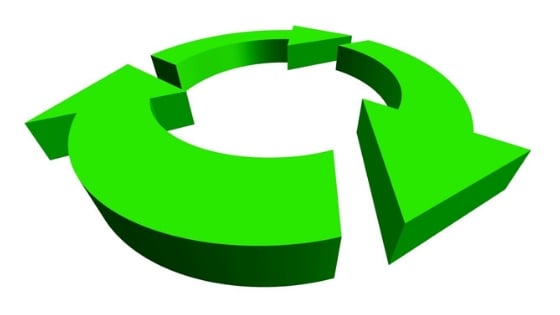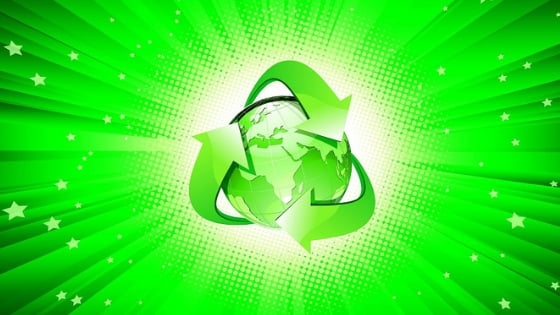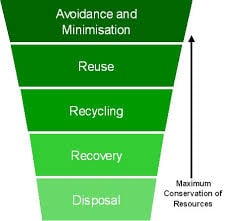
Why Recycling Is A Waste Of Time – Is It Really? We Look At The Evidence 🤔♻️
Why Recycling Is A Waste Of Time 🤔♻️: If you are a regular reader of our blogs, you will surely be surprised to see a blog entitled ‘Why recycling is a waste of time’. The ‘recycling is a waste of time’ argument is more common than you may expect. And we believe that some very valuable conclusions can be gained from it.
In today’s blog, we will cover issues such as misconceptions about recycling being a waste of time debate, some good points in this argument and an analysis of whether recycling is really all it’s cracked up to be.
>Download Now: Free PDF Business Owners Guide To Commingled Recycling Bin Services
A bit about Waster
Waster is an Australian business that helps small and medium companies maximise their recycling, save money and benefit from flexible 30-day agreements for their waste services.

You can access all waste and recycling services in your city from all suppliers. You do not need to be tied to one restrictive long term contract. This means you can benefit from all recycling options available whether they are organic recycling bins, commingled bins or cardboard recycling, etc.
Click the blue-button links at the bottom or top of this page to find out much more about our services.
How recycling is promoted as a benefit and complete solution
If you read the press or listen to your local council or waste provider, you would almost believe that recycling is perfect and creates new materials that can constantly be reused. It almost takes away any guilt you may feel from using lots of resources and throwing away the waste – whether it be old items or packaging, etc.
This almost sounds too good to be true. The term recycling makes it sound like the commodity is being reprocessed for real and beneficial reuse. But how true do you think this is?

The concept of recycling and a recycling industry makes it feel like we are not that bad. In other words, it minimises our guilt at a throwaway lifestyle that is prevalent all over the developed world.
All traditional societies had a concept of guilt at behaving outside social norms; in our modern world, we can consume and dispose of as much as we like as long as we ‘recycle’.
Does it sound too good to be true? Well then… Continue reading to learn more.
A common misconception that feeds the ‘why recycling is a waste of time’ debate
Many people in Australia assume that pretty much all waste and recycling basically ends up in landfill (i.e., the notion that recycling in any form is basically a con job). This has been encouraged to some extent by recent TV exposes of the Aussie recycling industry such as ABC’s War On Waste.
Despite some isolated incidents, this is not true. When a bin is picked up and emptied for waste recycling, it nearly always is recycled. The waste does not go to landfill. This is certainly true when it contains valuable resources such as cardboard, certain types of glass, valuable metals etc.
Furthermore, this recycling is driven by cost-saving and not by not dumping at landfill. Mind you, dumping waste at landfill costs a lot due to the levies! No profit maximising waste or recycling business will charge you a recycling collection rate (lower than general waste) and then dump it at a loss in landfill.
When we question recycling, we do not question whether it happens. Instead, we sometimes question the real benefit to the economy and the planet.
It is not just down to recycling; is it shifting the blame or not telling the truth?
The ABC TV show took the position that the general public really wants recycling. Unsurprisingly, shady corporates were not delivering what they wanted. However, as The Jam sang and said, “the public gets what the public wants”. As we saw in the public push back on the plastic bag fees in Coles and Woolies, the people may be less keen on recycling than we are led to believe. At the end of the day, companies reflect society.
The Western world has chosen consumption and convenience above responsibility and environmentalism. And, with this amount of consumption, this means waste.
Is recycling just a convenient mistruth or fake news to make us all feel better? Yes or no?
Does recycling actually create useful products in the right place at right time instead of being a waste of time?
Let’s be honest, a lot of what is called recycling basically creates items that no one really wants. It also just delays their eventual dumping at landfill.
For example, in Australia, we turn plastic bags, etc. into items like playground and garden furniture that cannot be sold. It is pretty much only donated to councils, etc. Is this really recycling? Sooner or later we need to either burn it for energy or dump it at landfill.
Nearly all developed countries have seen huge decreases in manufacturing in recent years. We have outsourced the dirty work of making things to other countries such as China.
The problem is that if we recycle in Australia, there are basically no manufacturing facilities to actually use recycled products. We consequently have to subsidise and export their recyclables to China or a country that actually makes stuff! Is that sensible from an economic perspective?
With that being said, we have no intention as a nation of reinvigorating our manufacturing base. We prefer the modern sleight of hand where we do not see the dirty work.
Why recycling is a waste of time: does landfill have an unfairly bad image?
The past saw landfills as a good thing instead of a bad one. It was originally a way of filling in old mines.
In a landfill, waste decays and emits gas which can be captured for electricity generation. Basically, it can power thousands of homes. As long as landfill is properly managed, it is not really that bad.
Think about it – organic food waste recycling, which is not subject to a landfill levy and described as recycling but involves bringing the waste to a facility where it decays and emits gas which is used to generate electricity.
Generally, we call this recycling. But, does it not sound quite similar to the modern landfill?
We have even published blogs on the concept of how landfills could become the power stations of the future and how biogas will power our homes in an off-grid future.
Is the landfill levy misguided?
The landfill levy, introduced in Queensland, is a real tax on business. It basically makes business pay for the cost of plastics. Many believe that it can be a real hindrance to business.
We call it a levy but tend to believe it more as tax. Does it really lead to recycling? And if it does, does it really work and how does it impact the economy?
And just an FYI, after years of a waste levy in Victoria and NSW, we still have no facilities capable of recycling nappies despite the presence of a known, available technology!

We basically need to stop using plastic
Why hide from reality? We basically need to stop using plastic. Plastic lives forever. We can, and always have, recycled metal, wood, cardboard, etc. But we find plastic as a totally different game compared to those mentioned before. It pollutes everything and lasts pretty much forever.
Trying to solve a problem rather than avoiding it in the first place is basically insanity.
Developing incredibly complex collection and processing systems for plastic when we could just avoid using it is crazy (makes you ask why recycling is a waste of time). If we just used glass, metal, wood, cardboard etc or compostable alternatives, we would avoid huge issues.
When we say, ‘why recycling is a waste of time’, what we are really saying is, ‘shouldn’t we just avoid plastic in the first place?’
The waste hierarchy below over argues for the point of recycling (why recycling is a waste of time debate). It is science fiction recycling in many ways. The chart should be 95% avoidance and minimisation and recycling/disposal for the other 5%.

Why recycling is a waste of time: should we not consider incineration?
Many countries like Sweden and Japan basically burn their waste plastic for energy generation. For them, ‘why recycling is a waste of time’ is already an answered question. They even import waste to burn! Is this not a smarter plan than ” fake recycling” it into garden furniture that is impossible to sell or export at subsidised rates to China?
Let’s also be honest – the why recycling is a waste of time debate also asks about the chemicals and energy involved in the recycling process because that is also not neutral.
We have asked lots of questions – not to be depressing – but to make us all think.
The TL;DR of recycling as a waste of time
Reading the statements above, you would definitely know better than to consider recycling as a hoax. However, the processes need to be put on the planning board and think it thoroughly. The main points to improve recycling include:
- Stopping the vilification of landfills – They are a necessity; utilising them the right way will work wonders!
- Removing plastic – We consider them as the true villains of an environmentally friendly and sustainable world. They have lots of downsides such as being primary pollutants, almost immortal (i.e., takes half a millennium or more to break down), has limits to being recycled and mostly single-use.
- Embrace incineration – Australia should follow the footsteps of Sweden and Japan and make incineration a prime source of energy.
The recycling as a waste of time argument will ensue further unless some changes occur.
Leave a Reply Cancel reply

Product categories
Most Popular Posts
-
Commercial Waste Management Services: Reduce Waste Collection Costs! 🚍
-
Medical Waste Disposal: Everything You Need To Find Out In 2024! 💉
-
Rubbish Removal Sydney 2024: Better Bin Collections For Business ✅
-
Clinical Waste Disposal 2024: What To Know About Business Clinical Waste ⚕️
-
Secure Document Destruction 2024: All About Security Bins Shredding 🔒
-
Free Cardboard Recycling 2024: Can I Get Free Cardboard Collection? 📦
-
Confidential Paper Disposal Bins 2024: What You Need To Know About Shredding! 🔒
-
Recycling Bins Australia 2024: Recycling Can Boost Your Profits! ♲
-
Commercial Wheelie Bin Collection: What Businesses Need To Know In 2024 🗑️
-
Commingled Recycling 2024: Why Commingled Bin Is Key To Recycling 🍾














